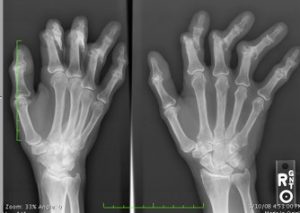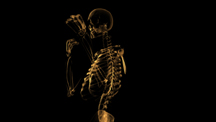Zinc Levels Tied to Osteoarthritis
 We’ve all heard that calcium is crucial for preventing bone and joint problems, but new research suggests there may be another mineral we need to be mindful of: zinc. In particular, a study suggests that levels of zinc within the cartilage cells may help to explain why tissue destruction occurs in patients with osteoarthritis.
We’ve all heard that calcium is crucial for preventing bone and joint problems, but new research suggests there may be another mineral we need to be mindful of: zinc. In particular, a study suggests that levels of zinc within the cartilage cells may help to explain why tissue destruction occurs in patients with osteoarthritis.
Arthritis is a leading cause of disability in the world, affecting 52.5 million adults in the US alone. Despite the prevalence of osteoarthritis, there are currently no cures to stop the progression of cartilage destruction that takes place in individuals with the condition. Researchers are still attempting to understand what happens at a molecular level to cause the tissue degradation.
Osteoarthritis results in the break down of cartilage between the bones, causing joint stiffness and swelling. Tissue destruction is caused by proteins called matrix-degrading enzymes, which are produced by cells within the cartilage. Matrix-degrading enzymes need zinc to survive, which led researchers to hypothesize that zinc levels play an important role in osteoarthritis.
Using lab mice, the researchers found that a protein called ZIP8 is responsible for transporting zinc within the cells, setting off a chain of events that eventually results in cartilage destruction. Their findings suggest that treatments to deplete zinc in the cartilage cells or inhibit this ZIP8 function may help to stop osteoarthritis. If the research is confirmed in future studies, keeping zinc levels in check could become an integral part of osteoarthritis treatment.
Many patients with osteoarthritis find that it can be successfully managed by a conservative, multimodal treatment, including exercise, nutrition, and chiropractic care. Research suggests that a combination of chiropractic and exercise can significantly ease symptoms in patients with osteoarthritis in the knees, hip, and hands.
Article was written by Marissa Luck and is shared from www.chironexus.net
References
Zinc may be missing link for osteoarthritis therapies. Medical News Today. February 17, 2014. http://www.medicalnewstoday.com/releases/272658.php.
Cell, Kim et al. Regulation of the catabolic cascade in osteoarthritis by the zinc axis.
